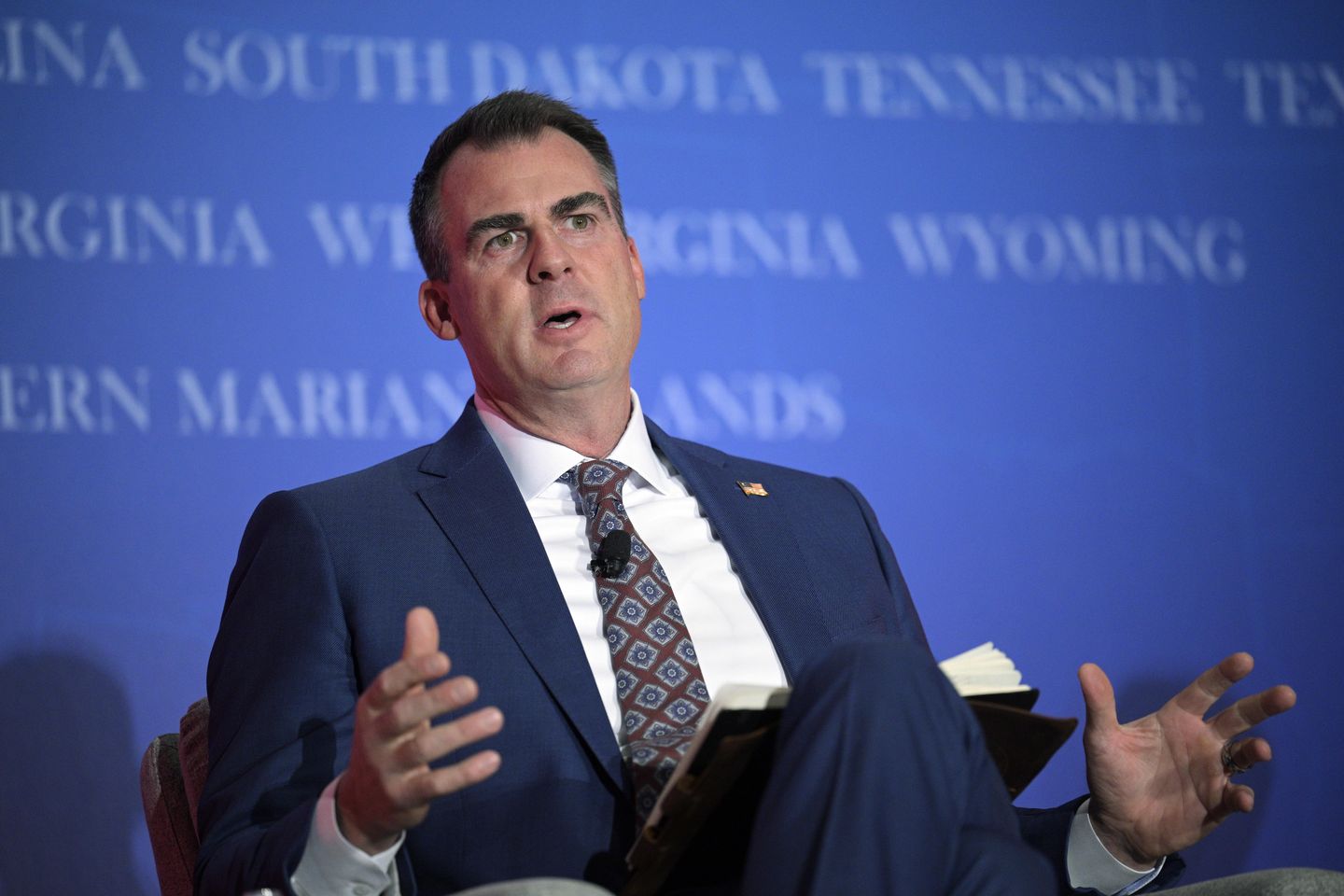
The Supreme Court will hear arguments Wednesday over what could be the nation’s first religious charter school in a clash over religious liberty that has split Republicans in Oklahoma.
Oklahoma Gov. Kevin Stitt backs the opening of St. Isidore of Seville Catholic Virtual School, saying to deny the religious charter school from operating runs afoul of the Free Exercise Clause of the Constitution and “sanctions open religious discrimination in the distribution of an otherwise equally available public benefit.”
His argument is that other entities — not connected to religion — can open charter schools, so St. Isidore should have the same ability.
“Allowing religious institutions the generally available public benefit of a school charter will bolster educational opportunities, educational diversity, and parental school choice,” Mr. Stitt, a Republican, wrote in a filing before the justices.
But Oklahoma Attorney General Gentner Drummond, also a Republican, opposes the charter school board’s decision to authorize St. Isidore’s opening.
He said the Oklahoma Constitution requires public school systems to be “free from sectarian control.” The problem, as he lays out in his court filing, is that St. Isidore incorporates Catholic teaching.
“In violation of the Oklahoma Constitution and United States Constitution, the State, through the Board, approved the application, executed the sponsorship contract, and unlawfully established the nation’s first religious public school,” Mr. Drummond said in his court filing.
The charter school board approved St. Isidore’s application, but Mr. Drummond went to the state’s Supreme Court to halt it. That court sided with him.
The charter school board and the school took the dispute to the Supreme Court.
If the high court sides with the Oklahoma Statewide Charter School Board, St. Isidore will become the nation’s first religious charter school. Charter schools are publicly funded but independently operated, providing parents options outside public-zoned schools.
The justices will decide if the exclusion of a religious charter school violates the Free Exercise Clause of the First Amendment or if the state can justify the exclusion.
Ilya Shapiro, senior fellow and director of constitutional studies at the Manhattan Institute, said precedent exists from the high court within the past decade that says if a state sets up a program generally available to all, it cannot discriminate on religious status when distributing that program.
He pointed to recent cases where the justices said a program that was used to refurbish playgrounds in Missouri had to include church playgrounds, and another legal battle over state-funded tuition for schools that the justices said can’t be prevented by Maine officials from going toward religious private schools.
“States fund plenty of nonprofit independent organizations to provide lots of social services,” Mr. Shapiro said. “This is going to be a pretty contentious argument.”
Robert Tuttle, a professor at the George Washington University Law School, said those cases are different because the funding decision, although the money came from the state, was ultimately made by individuals using the grants.
“In those cases, it is fair to say the state is not responsible at all if the parent chooses to send their children to a religious school versus a nonreligious school,” he said, adding that’s different from the Oklahoma charter school situation.
“This is direct sponsorship of religious education,” Mr. Tuttle said.
Justice Amy Coney Barrett is recused from the case. Court watchers believe the recusal was due to her connection to one of the challengers defending the school’s opening.
The cases — Oklahoma Statewide Charter School Board v. Drummond and St. Isidore of Seville Catholic Virtual School v. Drummond — were consolidated. A decision is expected by the end of June.












